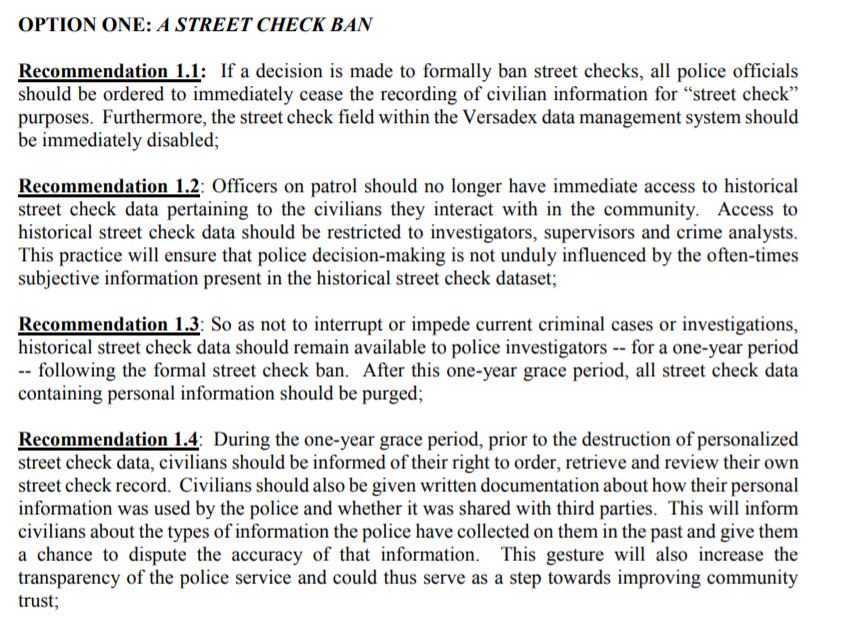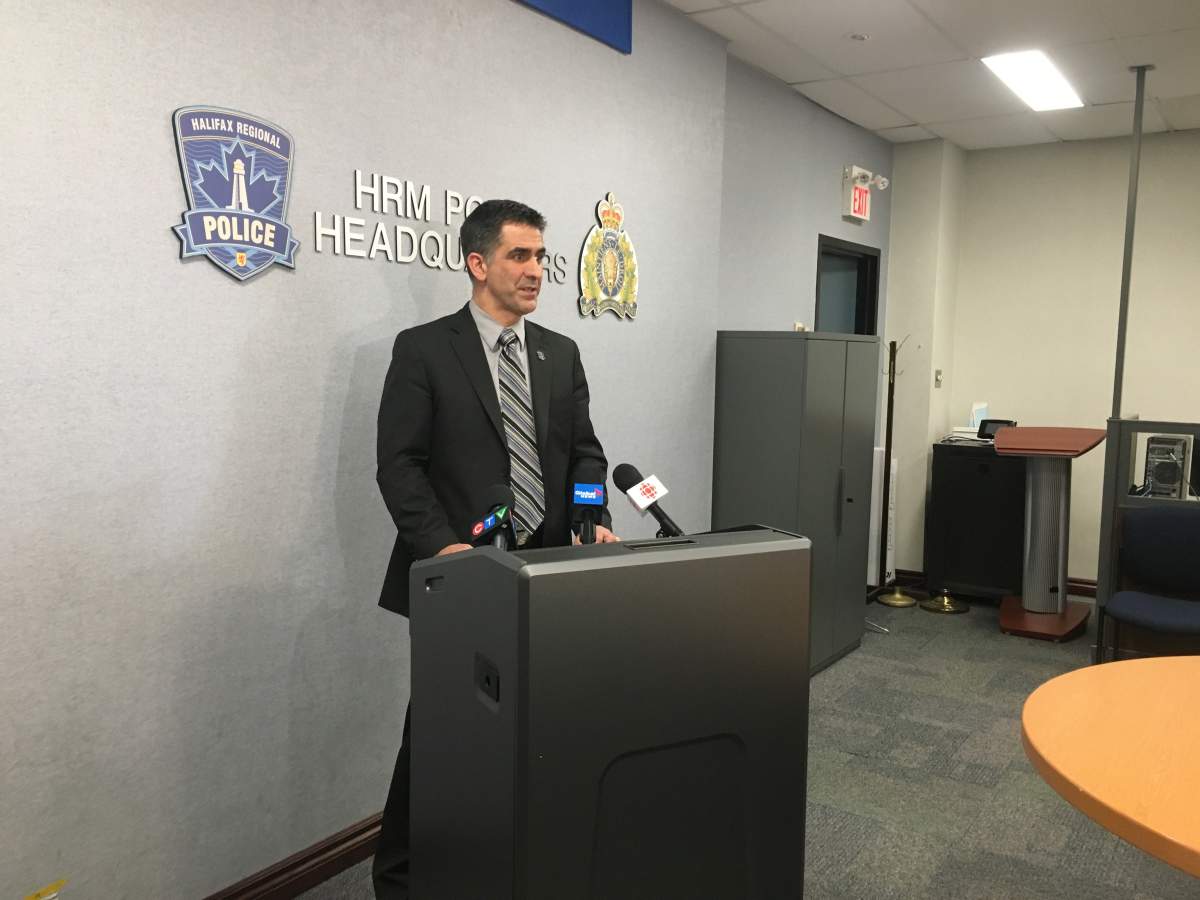For now, police officers across Nova Scotia have been directed by Justice Minister Mark Furey to stop using street checks. It’s an issue African Nova Scotians have been flagging as a concern in the province for decades.

Many feel the best way to eliminate racial profiling by street checks is to ban the practice outright.
“You can’t explain it. It’s just the feeling you get and you’re frustrated and you’re angry because you’ve never done anything wrong,” said community activist Quentrel Provo.
“Just being profiled by the colour of your skin, there’s no words. And it’s 2019, you’re still being racially profiled. So that’s a problem that’s deeply rooted in the policing system.”
A street check ban is the first option recommended in the 186-page Street Check Review report issued by Professor Scot Wortley, a doctor of criminology at the University of Toronto.
Besides a ban, the report alternatively recommends that the quality and regulations of street checks be improved. That’s a recommendation Provo wants to see implemented in order to prevent future generations of black youth from experiencing the discrimination he has.

Get daily National news
“I have a son so I’m just hoping that he doesn’t have to get racially profiled when he grows up. I want to see changes. Yes, we can put a stop to it right now, suspend it but if it comes back and it’s still the same old story, it’s not going to do,” Provo said.
Halifax Regional Police respond to moratorium
The new ministerial directive from Minister Furey is being communicated to members of the Halifax Regional Police.
“The moratorium outlines what isn’t acceptable practice and that includes the general intelligence gathering of pedestrians and passengers. The minister was also cognizant that police still have to investigate offenses, we still have to be able to police the community but certainly, there are changes that affect us,” Halifax Regional Police Supt. Jim Perrin said.
Perrin says the organization is focused on improving the abilities of the force to best serve the communities they’re in.
“We certainly understand that biases exist and biases exist in our systems and bias can also creep into any of our lives, in our professions and we understand that and we’re committed to continual improvement,” he said.
Many members of the African Nova Scotian community are calling for a formal apology in light of the report findings.
The report found very little evidence to support the argument that street checks actually lower crime. Black males, particularly youth, are grossly over-represented in street check statistics.
Perrin didn’t give any indication that a formal apology was in the works by the organization.
“Organizational apologies, that’s a very complex, sensitive manner and right now we’re committed to addressing the ministerial directive and having those ongoing and respectful conversations with our communities.”
Perrin firmly reiterated police plan to move forward in restoring trust between the organization and the African Nova Scotian community.
“We need to have those ongoing consultations, conversations with a variety of stakeholders including the communities that we police.”











Comments